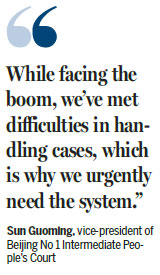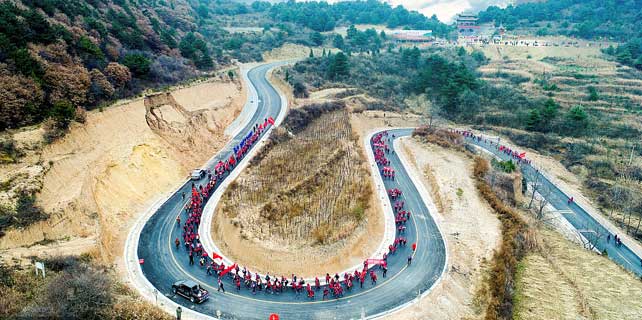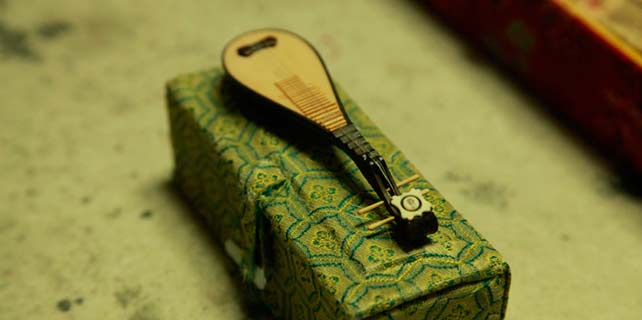System to guide suits of civilians vs military
Beijing court and the People's Liberation Army established a working system on Tuesday to help resolve civilian-military disputes.
"The system will not only help us efficiently handle a rising number of disputes brought by ongoing military reform, but also improve our communications with military courts," said Wu Zaicun, president of Beijing No 1 Intermediate People's Court.

China began a massive reform of its military two years ago. It has included merging departments to optimize efficiency, and putting restrictions on commercial activities to safeguard security and prevent corruption.
"As the reform is being pushed forward, some disputes have arisen between civilians and the military," said Sun Guoming, vice-president of the court.
For example, the court has handled several lawsuits brought by business owners evicted from properties owned by the armed forces, he said, adding that the court has had an increase in military-related cases in the past two years.
Since 2015, the court has concluded 106 military-related cases, and the number of new cases is rising, according to the court. It concluded 39 such disputes last year, and the figure has reached 52 this year.
"While facing the boom, we've met difficulties in handling cases, which is why we urgently need the system," Sun said.
"For example, we had to spend much time to verify whether a company or institute subject to a lawsuit is actually a military department, because sometimes it looks like an ordinary company, but actually it belongs to a military authority," he explained. "Besides, we often struggle to access military documents and are denied access to military properties for on-site investigations."
The working system should solve such problems, he said, adding the quick verification of military departments will also protect civilian litigants, helping them to clearly know what kind of cases or defendants they will confront.
Li Weihai, a law professor at China University of Political Science and Law, applauded the system, saying similar working mechanisms between civilian and military courts, such as liaisons, are common in developed countries.


















